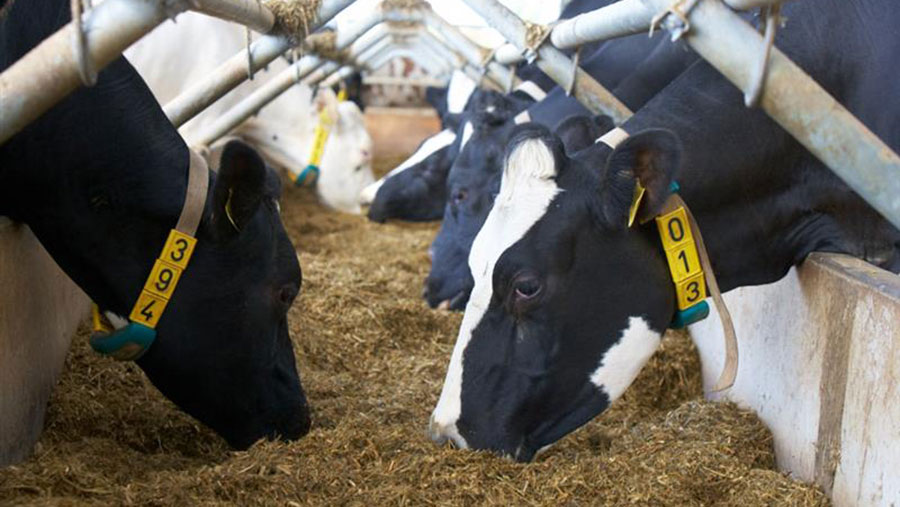Advertiser content
UK Agri-Tech Centre: Opportunities for improving resilience in nutrient management

Effective nutrient management is vital to boost productivity while minimising environmental impact.
By maximising the efficiency of nutrient use, farmers can achieve better crop growth and yields, ultimately improving their bottom line.
At the same time, effective nutrient management practices help protect soil and water quality by reducing the risk of nutrient runoff and erosion.
This not only benefits farmers by ensuring the long-term sustainability of their operations but also contributes to broader environmental conservation efforts.
The UK Agri-Tech Centre is the largest agri-tech organisation in the UK and dedicated to accelerating agri-tech ambitions, matching solutions to problems and driving impactful and rapid change through innovation.
Innovation and tech opportunities
Experts at the UK Agri-Tech Centre give their insight into emerging areas for innovation:
1. Advanced waste management technologies
Technologies like advanced composting, anaerobic digestion, and thermal treatment are at the forefront of transforming organic waste into valuable agricultural inputs.
These technologies help stabilise nutrients and reduce losses, integrating sustainability directly into the nutrient management cycle.
Project spotlight: The Micro AD Farm project, developed by BioFactory, leverages Anaerobic Digestion (AD) technology to transform cow slurry into renewable energy on small to medium-sized farms.
This scalable and modular system efficiently manages nutrient-rich waste, enhancing slurry quality for better crop nutrient uptake and soil health, while also reducing greenhouse gas emissions.
The project directly addresses nutrient management in agricultural waste, aligning with ecological goals by producing biogas as an alternative to conventional energy sources.
For more details, you can visit the Micro AD Farm website.
2. Soil and water conservation practices
Regenerative agricultural techniques, such as no-till farming, cover cropping, and strategic livestock management, play a crucial role in improving soil health and reducing runoff.
These practices preserve soil organic matter and enhance carbon sequestration, contributing to the resilience and sustainability of farming operations.
Project spotlight: The Potato-LITE project, supported by Innovate UK, is spearheaded by a consortium including PepsiCo and McCain Foods.
This initiative focuses on developing sustainable tillage practices for potato farming to reduce greenhouse gas emissions, improve soil health, and optimize tillage intensity.
By introducing innovative machinery and cultivation techniques, the project aims to enhance environmental sustainability and economic viability in the UK potato sector.
For more information, you can visit the Potato-LITE project website.
3. Enhanced resource management
Precision agriculture technologies, including AI-driven insights and real-time data analysis from advanced sensors, are revolutionising how nutrients are applied in the fields.
These technologies ensure that nutrients are efficiently used, minimising over-application and environmental contamination.

© UK Agri-Tech Centre
Project spotlight: The SprayBot project, funded by Innovate UK, brings together multiple technologies to develop precision detection and application approaches in arable crops.
Combining remote monitoring using spore traps and DNA diagnostics to forecast infection risk, multispectral cameras on a sprayer boom to detect early disease infection, and precision application nozzles to target pre-symptomatic infections and areas of infected plants.
This project showcases how combining technologies can enable growers to better target and reduce input usage.
The project is a collaboration between; the UK Agri-Tech Centre, University of Newcastle and FOTENIX, supported by Rothamsted Research and Silsoe Spray Applications Unit.
4. Risk mitigation strategies
New approaches to reduce or remediate contamination risks are critical in ensuring the safety and efficacy of nutrient recycling.
Techniques such as heat treatment and chemical disinfection, or extraction and partitioning technologies, guarantee that recycled nutrients are free from pathogens, supporting safe and sustainable reuse in agriculture.
Project spotlight: The NTPlus project, supported by Innovate UK’s Sustainable Innovation Fund, showcases an innovative approach to transforming water treatment by products into a valuable liquid fertiliser.
Led by Agua DB Ltd, the project explored the feasibility of a new process that not only removes nitrate from groundwater but also repurposes it as a sustainable agricultural input.
This process not only aids in achieving environmental sustainability by reducing nitrate levels in water bodies, which are harmful to aquatic life and can degrade drinking water quality but also supports agricultural productivity by turning potential waste into a resource.
Further reading
- UK Parliament Briefing: ‘The Future of Fertiliser Use’ with contributions from the UK Agri-Tech Centre specialists.
- Report: Why Nitrogen Matters in Livestock.
If you have an idea for an innovation that would drive impactful and rapid change, Defra and Innovate UK have just launched a development fund for collaborative projects to improve nitrogen and phosphate management, reduce pollution and greenhouse gas emissions and enhance water quality through innovative nutrient application techniques.
Connect with the UK Agri-Tech Centre to understand how we can accelerate your agri-tech ambition.
Please get in touch with us via info@ukagritechcentre.com
Provided by
UK Agri-Tech Centre offers a complete life-cycle of support, driving agri-tech innovation and adoption through world-class facilities, expert knowledge and business support, saving you time and accelerating your progress.
